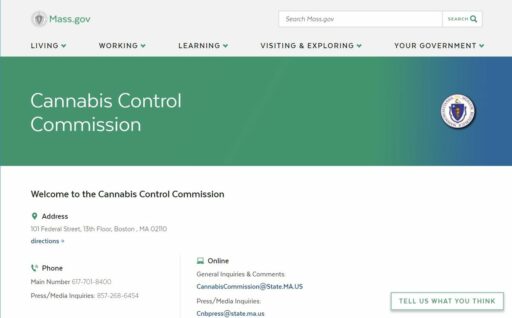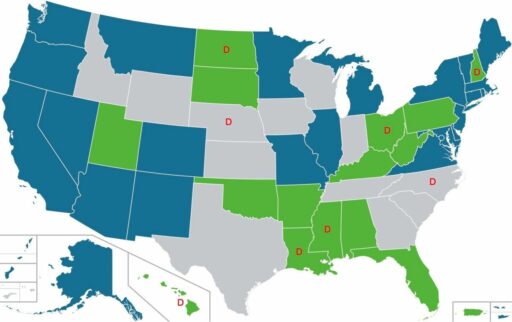The legal status of marijuana in California is a complex tapestry woven with state legislation, federal regulations, corporate interests, cultural shifts, and workplace policies. This article explores the intricacies of marijuana legality in California, examining the current laws, corporate influence, and the evolving workplace and cultural landscapes. We delve into the implications for businesses, especially in human resources management, and the broader societal perceptions of cannabis.
Key Takeaways
- California has legalized marijuana for both medical and recreational use, but it remains illegal under federal law, creating a state versus federal legal conflict.
- Corporate entities like ‘Real Cannabis CA’ are influencing legalization narratives and may impact local cultivation and market competition.
- Workplace policies are adapting to the legalization of cannabis, balancing safety and compliance with changing legal protections for employees.
- Public attitudes towards cannabis are shifting in California, reflecting a unique cannabis culture that may influence nationwide perceptions and sales.
- California’s AB 2188 introduces new employment protections for off-duty cannabis use, compelling employers and HR professionals to reevaluate drug screening and workplace policies.
Understanding California’s Current Marijuana Laws

The State vs. Federal Legal Conflict
In the United States, the legal status of marijuana is a complex tapestry woven from both state and federal laws. California has legalized marijuana for both medical and recreational use, but it remains a Schedule I controlled substance under federal law. This dichotomy creates a significant legal conflict, as activities deemed legal by the state can still be considered illegal at the federal level, particularly on federal property.
The Controlled Substances Act (CSA) federally prohibits cannabis, yet states like California have passed their own laws regulating its distribution and use. Financial institutions face a precarious situation, as handling proceeds from cannabis-related activities could lead to anti-money-laundering charges. Despite this, discussions about reclassifying marijuana to a less restrictive schedule have been ongoing, acknowledging its potential medical benefits.
The legal landscape is further complicated by the fact that courts have disagreed about the scope of federal preemption in the cannabis context. No court has ever considered a preemption challenge to a state law directly addressing marijuana legalization.
Medical vs. Recreational Use Regulations
In California, the legal framework differentiates between medical and recreational marijuana use. For medical use, patients must obtain a recommendation from a licensed physician and may join a medical marijuana program, which offers certain legal protections and tax exemptions. Recreational use, on the other hand, is available to adults aged 21 and over, with no prescription required.
- Medical Use: Requires physician’s recommendation, program membership, legal protections, tax benefits.
- Recreational Use: Available to adults 21+, no prescription needed, subject to standard taxes.
While both forms of use are legal in California, they are governed by distinct sets of regulations that impact accessibility, consumption, and the commercial market. It is crucial for consumers to understand these differences to ensure they remain compliant with state laws.
The state has established a regulatory framework that includes licensing and permits for retail sales, cultivation, manufacturing, and distribution. Age restrictions are also in place, with 21 being the minimum age for recreational use, while medical use is accessible to younger patients with qualifying conditions.
AB 2188 and Employment Protections
With the enactment of AB 2188, California has taken a significant step in protecting employees who use cannabis off-duty. The law prohibits discrimination based on the presence of non-psychoactive cannabis metabolites in drug tests, ensuring that private, non-work-related consumption does not unfairly impact an individual’s employment status. However, this protection does not extend to all job positions. For example, roles in the construction trades or those requiring federal background checks are exempt from these provisions.
AB 2188 represents a pivotal shift in employment law, balancing the rights of employees with the need for workplace safety and compliance with federal regulations.
Employers must now navigate this new legal landscape by updating their drug and alcohol policies to align with AB 2188. The following list outlines key considerations for California employers:
- Review and revise drug testing policies to comply with AB 2188.
- Understand the exemptions and ensure that positions requiring federal checks are appropriately managed.
- Educate HR professionals and management on the implications of the new law.
- Implement training programs to maintain workplace safety without infringing on employee rights.
The Corporate Influence on Cannabis Legalization

The Role of ‘Real Cannabis CA’
The Department of Cannabis Control has initiated ‘Real Cannabis CA’ as a significant education and public persuasion campaign. Its mission is to enlighten Californians about the benefits of buying from licensed retailers, emphasizing the stark contrast between regulated and unregulated cannabis products. This initiative is pivotal in guiding consumers to make informed decisions and to support the legal cannabis market.
‘HERE’S WHAT MAKES CA CANNABIS "REAL"’ according to their website includes a commitment to consumer protection. Real CA Cannabis products are subject to stringent health and safety regulations, providing essential details about the product’s origin and contents:
- Consumer protection
- Health and safety standards
- Transparency in product information
The campaign’s messaging suggests that California’s cannabis is superior, rooted in the state’s history of cultivation. However, this narrative is not without its critics. Some view it as a strategic move to capitalize on the complex history of California’s cannabis industry, which has been marred by controversy and the impact of past legislation.
The ‘Real Cannabis CA’ initiative is a contentious topic, with some seeing it as a genuine effort to promote safety and quality, while others criticize it as a facade for corporate interests.
Despite the optimistic portrayal by the Department of Cannabis Control, skepticism remains about the state’s ability to enforce meaningful standards. The campaign has been met with mixed reactions, with some labeling it as an ineffective solution and a push towards a corporate-dominated market.
Corporate Schemes and Public Persuasion
In the unfolding narrative of California’s cannabis legalization, corporate interests have played a pivotal role, often overshadowing the consumer’s voice. Corporate capture has become a critical concern, with companies influencing regulations to their advantage. This manipulation is not just about gaining market share; it’s about shaping the entire landscape of the industry.
- Regulatory capture through commissions operated by corporations
- Steering of market and public opinion via awareness campaigns
- Contradictions in terminology and unsupported Federal backing
The intricate dance between corporate power and public policy has led to a complex web of influence that extends far beyond the storefronts of legal dispensaries.
The financial implications are staggering, with police departments claiming to recover millions in cannabis-related assets. Yet, the question remains: where does this money ultimately flow? The current system seems to be designed to provide advantages to large entities, while smaller, local businesses struggle to compete. The result is a market that favors the established and wealthy, potentially stifling innovation and diversity within the industry.
The Impact on Local Cultivation and Competition
The legalization of marijuana in California has led to a significant shift in where and how cannabis is cultivated. Local cultivators now often find themselves on ‘marginal’ lands, which introduces a myriad of regulatory hurdles. These challenges include farming on steeper slopes, managing natural streams onsite, and operating without access to large groundwater aquifers for irrigation.
Despite being one of the top five most economically valued agricultural commodities in the state, cannabis farming remains largely on remote, environmentally sensitive lands. This situation is not only a product of current regulations but also a reflection of historical policy regimes that have shaped the industry’s development.
The marginalization of cannabis cultivation has broader implications, leading to environmental conflicts and placing legacy farmers at a disadvantage. These cultivators, who have established their farms under previous policies, now face cultural and economic exclusions.
The distribution of licensed cannabis cultivation is inversely related to a county’s median income and the prevalence of traditional agriculture. This has resulted in fewer licenses being issued in wealthier counties with established agricultural sectors, impacting local competition and the dynamics of cultivation.
Workplace Policies in the Age of Legal Cannabis

Adapting Drug and Alcohol Policies
In the wake of marijuana legalization, employers must adapt their drug and alcohol policies to align with current laws while maintaining workplace safety. A clear written policy is essential, detailing the scope of coverage, testing circumstances, procedures, and consequences for non-compliance.
- Clear Written Policy: Establish a comprehensive policy that is easily understood by all employees.
- Consistency is Key: Apply the policies uniformly to prevent legal issues.
- Stay Informed: Regularly update testing methods to ensure legal compliance.
Employers are also encouraged to provide training for employees to recognize signs of impairment, fostering a culture of safety and responsibility. Technologies such as breathalyzers and oral fluid tests should be considered as part of a well-defined drug testing protocol. Adapting policies not only helps in navigating marijuana policies in the workplace but also supports a drug-free environment conducive to productivity and well-being.
Ensuring Safety and Compliance
In the era of legal cannabis, ensuring safety and compliance within the workplace is paramount. Companies must navigate a complex web of regulations while maintaining a safe environment for all employees. A proactive approach to compliance is essential, involving regular audits, staff training, and thorough documentation of processes.
- Compliance Audits: Regular checks to ensure adherence to legal standards.
- Staff Training: Ongoing education on new regulations and safety protocols.
- Documentation: Detailed records of compliance efforts and procedures.
By fostering a culture of compliance, businesses can mitigate risks and operate smoothly. Collaboration with industry associations and legal experts can further enhance a company’s ability to stay ahead of regulatory changes. Maintaining transparency throughout the supply chain is also crucial, as it demonstrates accountability and aligns with legal requirements.
Partnerships with compliance experts are invaluable, offering guidance on the latest regulations and strategies to align distribution practices with the legal landscape. This collaborative effort ensures that the safety and integrity of the workplace are upheld, benefiting both the employees and the organization.
Navigating Pre-Employment Screenings
In the wake of marijuana legalization, pre-employment screenings have become a complex issue for California employers. The shift from traditional urine tests to saliva-based oral fluid tests is a significant change, reflecting the need to distinguish between current impairment and past use. Employers are now tasked with revising their application materials and hiring processes to align with new legal standards, particularly those set by AB 2188.
Employers must balance the legal protection of off-duty cannabis use with the imperative to maintain a safe and productive workplace.
Here are key considerations for employers when navigating pre-employment screenings:
- Review and update workplace drug policies to comply with current laws.
- Implement drug tests that detect active THC rather than non-psychoactive metabolites.
- Ensure that hiring practices do not discriminate against individuals for protected off-duty cannabis use.
- Maintain clear guidelines for safety-sensitive positions where impairment could pose significant risks.
The Cultural Shift and Cannabis Perception

The Evolution of Public Attitudes
The perception of marijuana in California has undergone a significant transformation over the years. Public opinion has shifted from viewing cannabis as a taboo to recognizing its potential benefits and advocating for its legalization. This change is reflected not only in the legal status of marijuana but also in the cultural norms and discussions surrounding its use.
- Public Awareness Campaigns: These initiatives have played a crucial role in educating the public about the safe and responsible use of cannabis.
- Community Engagement: Local discussions and involvement have furthered the understanding of marijuana’s legal and social implications.
The evolving attitudes towards cannabis are indicative of a broader cultural shift that is likely to continue influencing policy and social norms.
The role of media, particularly specialized platforms like the Marijuana News website, has been instrumental in shaping public perception. By covering a wide range of topics from health benefits to legalization efforts, these outlets have provided a nuanced view of the cannabis industry and its place in society.
California’s Unique Cannabis Culture
California’s cannabis culture is deeply rooted in the state’s history and has evolved into a defining aspect of its identity. The state of California has been at the forefront of efforts to liberalize cannabis laws in the United States, beginning with initiatives as early as 1972. This pioneering spirit has contributed to a perception of California as a special place for cannabis, both in cultivation and consumption.
The notion of ‘California cannabis’ as a unique product is both celebrated and contested. Advocates like ‘Real Cannabis CA’ tout the state’s history of cultivation, while critics question the authenticity of this claim. The reality is that cannabis plants have an incredible ability to adapt and thrive in diverse environments, suggesting that quality is more influenced by genetics, expertise, and experience than geographical borders.
California’s claim to a unique cannabis culture is not just about the plant’s ability to grow; it’s about the history, the people, and the movements that have shaped its role in society.
The debate continues as to whether California’s climate offers a unique advantage for cultivation. The legendary tales of seed hunting and the development of modern genetics in places like Humboldt County highlight the state’s contribution to the cannabis industry. Yet, as the nation moves towards wider legalization, the focus may shift from regional pride to a broader appreciation of cannabis’s versatility.
The Future of Nationwide Cannabis Sales
As the cannabis industry looks ahead, the trajectory of nationwide sales is a topic of much speculation and strategic planning. With 2023 in the rearview mirror, stakeholders are keenly observing the legislative landscape for signs of further reform. Legalization and reform at the state level are likely to continue in 2024, buoyed by the public support for cannabis legalization reaching an all-time high in the previous year.
The potential rescheduling of marijuana by the DEA, following a recommendation from the HHS, could be a watershed moment for the industry. This change could significantly alter the legal and regulatory framework governing cannabis, impacting everything from banking to interstate commerce.
The question of whether the federal government will follow suit with the states that have legalized cannabis remains. The Controlled Substances Act still classifies cannabis as federally illegal, creating a complex web of compliance issues for businesses operating in multiple states.
Legal Implications for California Employers

Understanding AB 2188’s Impact
With the signing of AB 2188 by Governor Newsom, California employers are now navigating a new legal landscape that prohibits discrimination based on an employee’s off-the-job cannabis use. This amendment to the state’s Fair Employment and Housing Act (FEHA) marks a significant shift in employment law, particularly in how drug testing policies are structured.
The law specifically targets the presence of non-psychoactive cannabis metabolites in drug tests, which can linger long after the effects of marijuana have subsided. This means that a positive drug test for these metabolites cannot be used as grounds for employment discrimination.
However, it’s important to note that AB 2188 does not extend to all positions. Certain jobs, such as those in the construction trades or roles requiring federal background checks, are exempt from these protections. Employers must remain vigilant in understanding which positions are affected and how to comply with the new regulations.
Balancing Employee Rights and Workplace Safety
In the wake of new legislation, employers are grappling with the dual imperative of respecting employee rights while ensuring workplace safety. The introduction of Senate Bill 5123 marks a significant shift, as job applicants are now shielded from discrimination based on their legal use of cannabis during the hiring process.
Employers must now carefully consider the type of drug testing they employ. Tests must be capable of detecting THC to be compliant with current regulations, which underscores the importance of adapting to technological advancements in drug screening.
Here are some key considerations for employers:
- Understanding the nuances of AB 2188 and its implications for employment practices
- Updating workplace policies to align with the latest legal requirements
- Training HR professionals on the best practices for drug testing and accommodation
Staying abreast of these changes is not just a legal mandate but a strategic move to maintain a safe and productive work environment.
Best Practices for HR Professionals
In the wake of new employment protections for cannabis consumption, HR professionals in California must be proactive in adapting their policies. It is essential to establish a clear written policy that outlines the scope, testing procedures, and consequences for policy violations. Consistency in enforcement is crucial to avoid legal challenges and ensure fairness across the organization.
To ensure compliance with the latest laws, HR should confirm that drug test vendors are up-to-date with current standards. Training for human resources staff in thorough documentation practices is also recommended to minimize the risk of retaliation claims.
By staying informed and implementing best practices, employers can respect employees’ rights while maintaining a safe and productive work environment.
Here are some key steps for HR professionals:
- Review and update disciplinary policies to align with new laws.
- Train HR staff in thorough documentation practices.
- Establish a comprehensive written policy on drug testing.
- Ensure consistency in policy enforcement.
- Stay informed about changes in cannabis-related laws and standards.
Conclusion
As we have explored throughout this article, the legal status of marijuana in California is a complex tapestry woven from state legislation, federal regulations, and evolving societal norms. While California has been at the forefront of cannabis legalization, allowing for both medical and recreational use, the state’s businesses and workplaces are still navigating the implications of these changes. The dichotomy between state permissiveness and federal prohibition, alongside the challenges of ensuring workplace safety and fairness, underscores the ongoing debate and adaptation required in this legal landscape. It’s clear that while the grass may indeed be greener in California, the path to harmonizing laws, corporate policies, and public opinion is still under cultivation.
Frequently Asked Questions
Is marijuana legal in California for both medical and recreational use?
Yes, marijuana is legal in California for both medical and recreational use. Adults 21 and over can legally use, possess, and cultivate marijuana within certain limits.
What is the conflict between state and federal laws regarding marijuana?
While marijuana is legal in California and several other states, it remains a Schedule I controlled substance at the federal level, making it illegal under federal law. This creates a legal conflict between state and federal jurisdictions.
Can California employers still conduct drug screenings for marijuana?
Employers in California can conduct drug screenings, but AB 2188 prohibits employers from firing workers for off-duty marijuana use that doesn’t affect job performance, with some exceptions for safety-sensitive positions.
What is ‘Real Cannabis CA’ and how does it influence cannabis legalization?
‘Real Cannabis CA’ is a corporate entity claiming to represent authentic California cannabis cultivation. It has been involved in branding and public persuasion campaigns, potentially impacting local competition and the broader legalization movement.
How should California employers adapt their workplace policies in light of legal cannabis?
Employers should review and potentially revise their drug and alcohol policies to ensure they comply with current laws, such as AB 2188, while still maintaining workplace safety and meeting industry-specific regulations.
What are the cultural implications of cannabis legalization in California?
Cannabis legalization in California has contributed to a shift in public perception, with growing acceptance and a unique cannabis culture emerging. This cultural shift may influence the future of cannabis sales nationwide.





